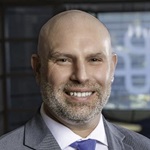I Won’t Drink to That: Dry January Movement Grows in Popularity

Answer a few questions and we'll provide you with a list of primary care providers that best fit your needs.
As a new year begins, the only thing that may be more synonymous with the singing of “Auld Lang Syne” is the customary practice of making — and then breaking — New Year’s resolutions.
Though you may be resigned to the idea that you may never live up to the promises you make before the clock strikes 12, a relatively new phenomenon known as “Dry January” has been growing in popularity in recent years.
Premier Health Now recently spoke with Joseph Allen, MD, of Premier Health Family Care of Vandalia to learn more about this growing movement and the potential health benefits for those who participate in it.
Should Old Habits Be Forgot
The Dry January movement was launched in 2013 by a charity in the United Kingdom to encourage people to give up drinking alcohol for the entire month. As it has grown in popularity, many participants have become aware of various health benefits.
“One of the immediate benefits people might realize when they reduce their alcohol intake is improved sleep,” says Dr. Allen. “It’s a bit of a misnomer that alcohol helps you sleep. The truth is that it may help you get to sleep, but it actually inhibits your ability to stay there and get the benefit of a deep, restful night’s sleep. Less alcohol also means less caloric intake, so that can also possibly lead to a greater ability for people to lose weight.”
It’s possible that the Dry January movement continues growing in popularity because of its short-term commitment. However, according to the Wall Street Journal, recent research shows that many Dry January participants tend to drink even less even after their self-imposed moratorium has ended.
“It’s said that it takes three weeks of consistent behavior to form a habit, so it wouldn’t be surprising that people might embrace such a healthy lifestyle change after experiencing its benefits for a month,” says Dr. Allen. “If that takes place, then it not only ensures better health for them, but for the community as a whole.”
Answer a few questions and we'll provide you with a list of primary care providers that best fit your needs.
Source: Joseph P. Allen, MD, Premier Health Family Care of Vandalia; Self Magazine; Wall Street Journal





